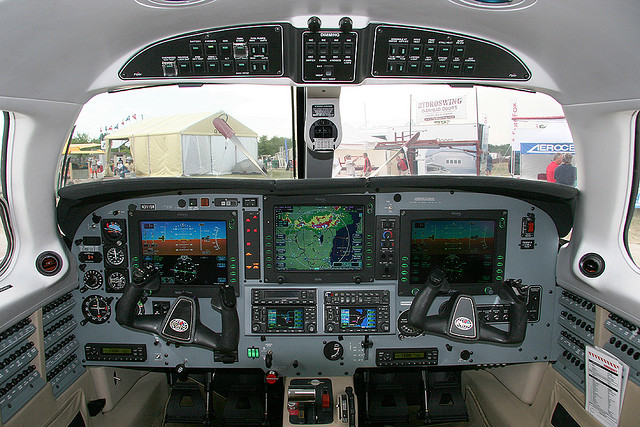Polarized Sunglasses Myths
Date: 07.30.15My stance on polarized lenses is about as controversial as it gets in the eye wear industry, but I believe anyone who takes a fresh look at this issue will agree that many long-held beliefs are wrong. Sometimes, bad information floats around for so long that people just start to believe it is factual. The limitations of polarized lenses are a great example of bad information.
Many in the eye wear industry, as well as many sports experts have made the following statements for decades:
- Motorcyclists should not use polarized sunglasses because polarization makes it harder to see puddles on the roadway.
- Snow skiers should not use polarized sunglasses because polarization makes it harder to see ice patches on a ski slope.
- Golfers should not use polarized sunglasses because polarization affects depth perception.
- Pilots should not use polarized sunglasses because polarization makes it harder to see instrumentation.
The first remark is the only point with any truth to them, and I will tell you why.
Many old-school motorcycle instructors still tell students not to wear polarized glasses claiming the glare of the sun reflecting off of a puddle will help a rider identify this hazard more quickly. Companies like Panoptx 7Eye who sell motorcycle glasses, list their polarized models with Fishing Sunglasses only. Panoptx does not list polarized lenses with their motorcycle glasses.
This exact same logic is applied to skiers and snow boarders as well. Polarized lenses are said to conceal the glare, or big splashes of light, that make it easier to recognize ice on the hill. This logic is absurd.
Glare is scattered light that obscures vision. Our testing never found a single instance where glare made any obstacle easier to see. Motorcyclists that rely on glare to differentiate between pavement and a puddle should visit an Ophthalmologist and look into a new prescription. Eliminating glare with polarized sunglasses makes each water hazard consistently more recognizable, regardless of the angle of the sun. Obstacles like rocks and sticks in the water were much more visible as well, not to mention the depth of the water was easier to determine.
Some golfers believe there is no advantage to polarization on a golf course unless you’re trying to see your ball at the bottom of a water hazard. However, if you’re trying to follow the ball in a sunny sky, or if you’re teeing off into a sunset or sunrise, the advantages will be obvious. Note that almost every professional golfer is wearing polarized lenses. (Kaenon and Oakley lead this pack.) Most NASCAR drivers are also wearing polarized lenses. If depth perception is an issue, polarized lenses would not dominate these sports.
Partially, I have to agree that most pilots should not wear polarized lenses. After wearing polarized lenses in my father’s plane I had decided that this was another myth that should be exposed, but after contacting the Aircraft Owners and Pilots Association (AOPA) I have reconsidered this. My father’s plane has a Glass Cockpit, which means none of these instruments are an L.E.D. display, rendering them visible to me. Glass cockpits are not standard in every aircraft. The AOPA pointed out that occasionally the only visual clue that another plane is nearby is the flash of light created when the sun reflects off of another aircraft. Polarized lenses could conceal the flash (glare) that may help pilots identify this traffic around them.
 |
You may still hear an occasional opinion that recommends against polarized lenses. But reliable testing and the world’s top athletes prove that nothing gives you a better visual advantage than polarized lenses. These may show you some unusual stresses in materials like rear windshields that have a defogger wire compressing some of the glass. But if the sun was reflecting off of that surface you would see a lot less.
While the myths about polarization are starting to fade as more research emerges, many eyewear insiders continue to perpetuate these falsehoods. Years before Essilor was able to make a polarized free-form lens they were telling opticians that polarized lenses should never be used in sports glasses. Essilor is the largest supplier of lenses on the planet, so people believed them (Information about our Anti-Trust complaint against Essilor is posted on our website). Now that Essilor is making polarized free-form lenses they no longer spread falsehood, but many of the thousands of opticians that Essilor talked to over the years still believe the myths about polarized lenses. Now you know better.
Dave DuMaisOwner and Optician of ADS Sports Eyewear
